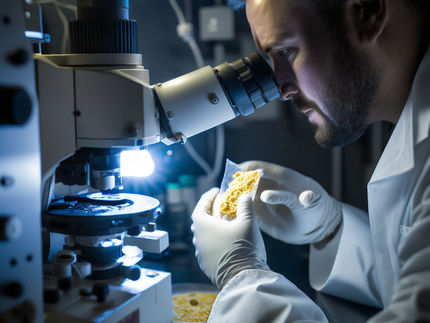BASF and universities jointly develop new process
Improvement of bioavailability of active ingredients
Advertisement
In collaboration with researchers from the renowned universities Harvard, EPFL, and Yale, BASF scientists developed a new process that makes amorphous nanoparticles with increased solubility. This improves the efficient uptake of drugs, for example, in the human body. Without such processing drug molecules would arrange in the form of crystals, which are difficult to dissolve. Due to poor solubility in many cases the development of innovative drugs has been discontinued.
The international research team has developed a microfluidic nebulizer to create very small nanoparticles from drugs that are first dissolved in a solvent and then exposed to a stream of air with the speed of 600 meters per second – almost twice the speed of sound. “The high-speed air flow enables fast evaporation of the solvent, which leaves no time for the molecules to arrange themselves in the form of a crystal. Molecules, therefore, arrange themselves randomly in an amorphous structure and are ten times easier to dissolve,” explained Dr. Christian Holtze, research manager at BASF.
The process can be applied to both organic and inorganic substances making it attractive for numerous potential applications. The increased solubility means higher uptake of active ingredients.
This is particularly valuable to pharmacology, the food industry and crop protection.
“This system offers exceptionally good control over the composition, structure and the size of particles, enabling the formation of new materials,” said Esther Amstad, professor at EPFL and formerly researcher at Harvard.
Marc Schroeder, BASF researcher and Head of the North American Center for Research on Advanced Materials is convinced: “This milestone finding is a result of strong collaborative efforts between industry and academic institutions to work closely on scientific challenges. The interdisciplinary approach has helped find a scientific explanation to an unexpected experimental finding, thus enabling broader potential applications of this technology.”























































